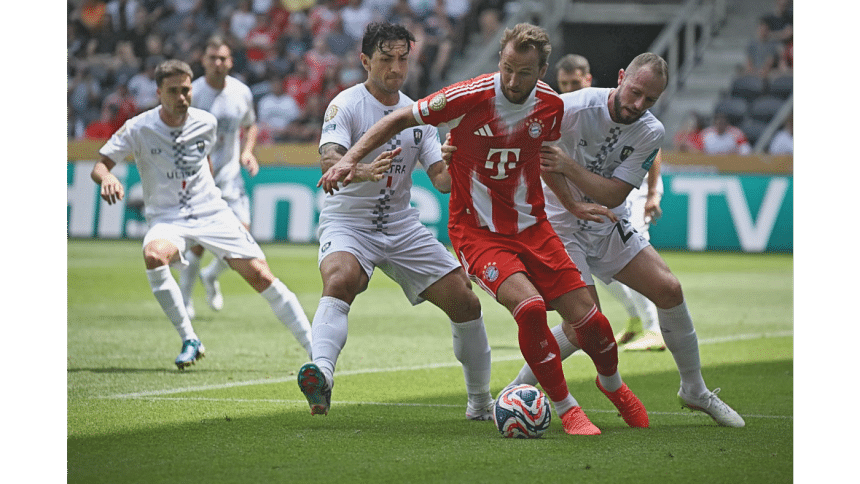Auckland brought a pen, Bayern a panzer

Nathan Lobo perhaps had more on his mind than defending Michael Olise at the FIFA Club World Cup on Sunday.
The 22-year-old Auckland City left-back had a university exam scheduled during the competition -- to be taken from his hotel room in Cincinnati.
Elsewhere in the line-up of the New Zealand side were a primary school teacher, a barber, a Coca-Cola salesman, and a part-time insurance broker. Together, they faced German giants Bayern Munich -- serial Champions League winners, and home to footballers earning more in a week than Auckland's players might see in a lifetime.
At the heart of the Club World Cup lies this improbable meeting of worlds; about how football's universality allows for a match-up where someone on £66 a week (roughly Tk 11,000) can line up against someone on £400,000 (over Tk 6.6 crore), which is Harry Kane's weekly wage.

Operating on an annual revenue of roughly £488,000 (around Tk 8.1 crore), Auckland City's entire squad is valued at just under £4m (approximately Tk 66 crore). In contrast, Bayern's payroll, infrastructure and squad depth reflect an empire worth over £800m (over Tk 13,000 crore).
However, Auckland are no strangers to the Club World Cup; for this was their 12th appearance, having dominated Oceania's club scene for over a decade.

Their date with the German champions at Ohio's TQL Stadium ended as many expected. However, the scoreboard -- a whopping 10-0; four of which was netted inside 22 minutes -- was only half the story.
After the final whistle, Bayern's Olise was asked if he felt for Auckland, the only amateur club in the mega event. "No," said the forward who scored twice; and one can't blame him for giving a blunt reply.
On the other camp, for Auckland players, it was about sharing a pitch, however briefly, with the best; about living a version of a dream -- even if, come morning, there's a business deal to report to or an exam to pass. Because for all the disparity in salaries, statistics, and status, the encounter -- if only for 90 minutes -- made equals of them all.
And that, in all its imbalance, is one of the many charms of a world stage.

 For all latest news, follow The Daily Star's Google News channel.
For all latest news, follow The Daily Star's Google News channel. 








Comments